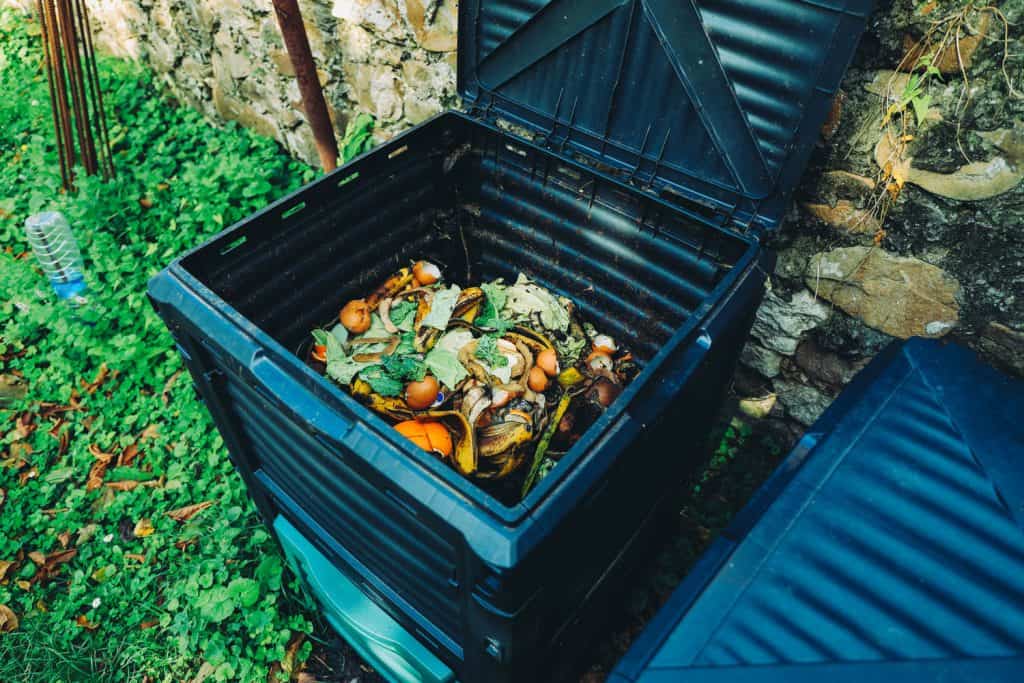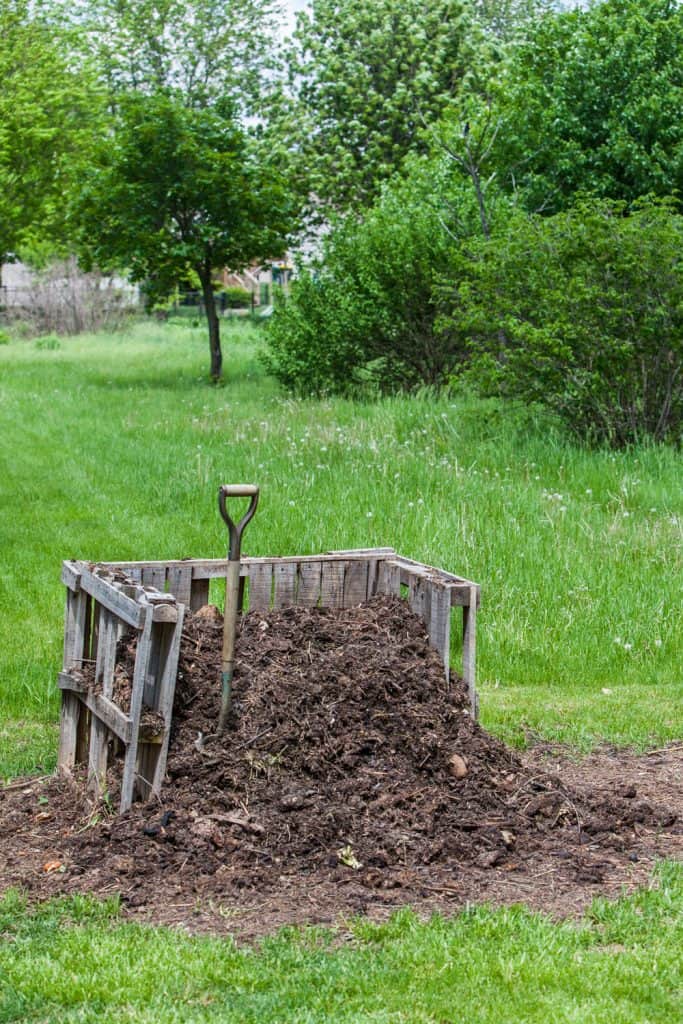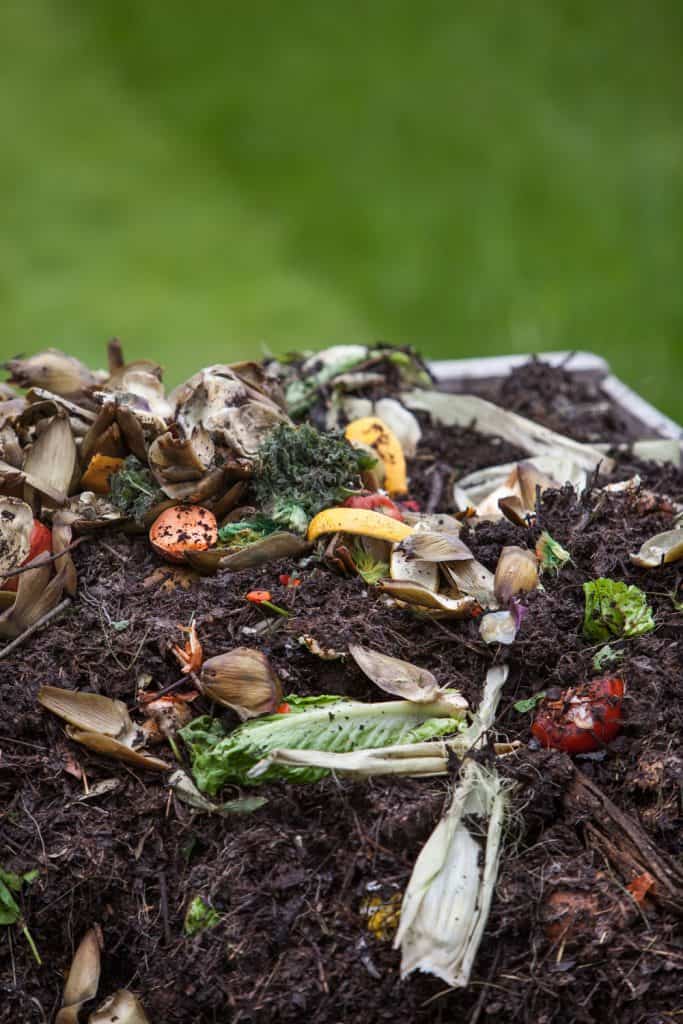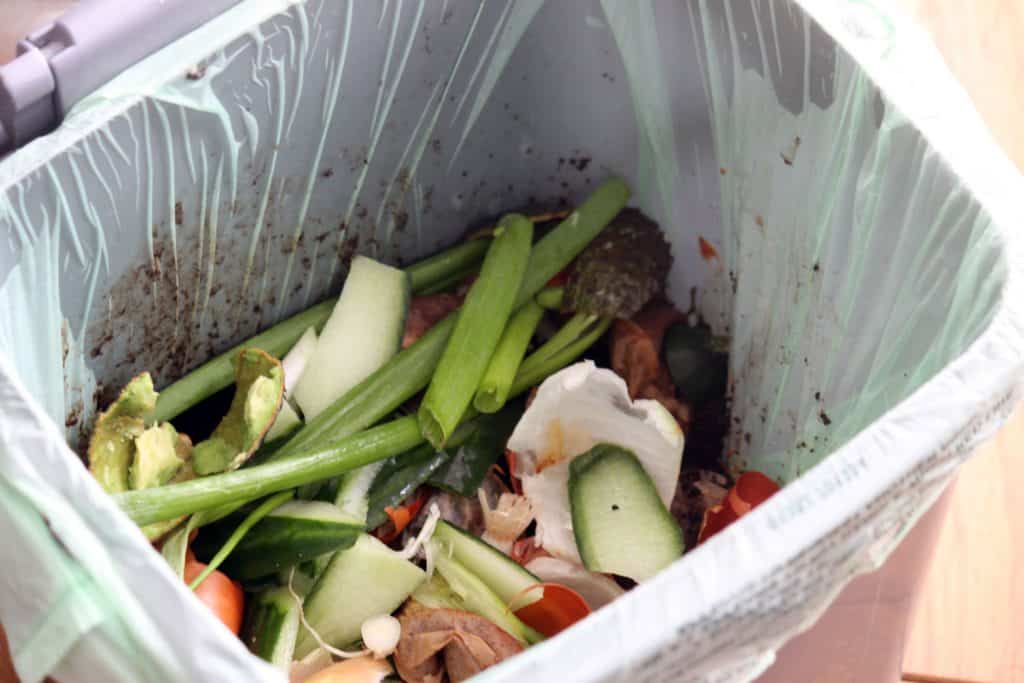If you make your own compost at home, you know how long it takes to turn it into something usable.
One of the keys to keeping your compost usable year-round is to store it over the winter.
But what are some ways that you can store your compost during the winter months? We’ve done the research and have come up with some solutions for you.
Here are 9 practical tips for storing compost over the winter:
- Store in a container.
- Cover the compost.
- Create a bigger pile.
- Use plastic bags.
- Build a roof over the pile.
- Move it inside a building.
- Choose ingredients carefully.
- Shred the ingredients.
- Use it as soon as possible.
Decomposition doesn’t stop over the winter, but it can slow down some. Repeated exposure to winter weather conditions can affect the health of your compost. Storing compost is important for ensuring that the decomposition process continues the way that it should and your compost remains usable. Continue reading to learn more about how to store compost in the winter.
![A compost bin with a wheel barrow on the side with a shovel, How To Store Compost In The Winter [9 Solutions To Consider]](https://gardentabs.com/wp-content/uploads/2021/09/How-To-Store-Compost-In-The-Winter-9-Solutions-To-Consider-683x1024.png)
9 Ways To Store Compost In The Winter
Whether you’ve made too much compost and weren’t able to use it all, or your compost is still in the decomposition process, it’s a good idea to store it if you plan to use it again next spring.
If the compost is finished, but you just have too much, then storing it can protect it from freezing or becoming waterlogged. If it is still in the process of decomposing, then storing it is essential for allowing decomposition to finish properly.
The easiest way to make and use compost is to store it on the ground in your garden space. But wet winter conditions can make the ground too moist, which can also affect the amount of moisture in your compost as well as the bacteria that aid in the decomposition process.
That’s why we’ve found some solutions that will help you store your compost in a practical way. We’ll also be providing some solutions for continuing to add to your compost throughout the winter while it’s being stored.
1. Store In A Container

One of the easiest and most practical ways for storing compost over the winter is to keep it in a container made just for that purpose. Compost containers can be found online or at most garden centers.
But you don’t necessarily have to shell out a lot of money for a container. Sometimes, you can buy a cheap garbage can with a lid and store it in there. Or, you can save even more money if you already have one at home.
If you do use a garbage can, be sure to drill a few holes into it to maintain aeration. You can also either buy a black container or paint the container black to help raise the temperature inside the closed container. Plastic is the best container material for compost because it will expand without breaking if your compost does freeze.
Click here to see this compost bin on Amazon.
2. Cover The Compost
Some people may prefer to leave their compost on the ground because it will allow worms to aid decomposition. Or, you may have just forgotten to store your pile of compost and have some bad winter weather coming.
If either of these applies to you, you can use a tarp as a quick and cheap way to cover your compost. Doing so will allow you to leave your compost on the ground while still keeping moisture out. Plus, the tarp will trap heat to allow the rate of decomposition to continue.
3. Create A Bigger Pile

If you’re going to leave your compost on the ground, it’s a good idea to make the pile bigger before winter comes. You will still need to cover it, but only to protect it from the cold above. The ground below it will still be cold, which can slow down decomposition on the outside of the pile.
The middle of the pile that isn’t in direct contact with the ground will stay warmer. The higher you pile the compost, the warmer the center of it will stay, and the rate of decomposition won’t slow down as much.
See more: "How Big Are Typical Compost Bins, Tumblers, Or Piles?"
4. Use Plastic Bags
You can use plastic bags for another cheap solution- such as a garbage or grocery bag- to store your compost. Plastic bags won’t decompose as the compost does and can be harmful to the environment. You can reuse them and help the planet as well.
To use plastic bags, you will need to make a few holes in each bag for aeration. And again, using black plastic bags will help with retaining heat. On really wet days, you can even tie off the bags to keep excess moisture out.
5. Build A Roof Over The Pile
This solution definitely requires some advanced planning, but it effectively prevents your compost from being exposed to too much rain and snow. With advanced planning, you can buy some lumber and sheets of metal to build a roof. Or, a quicker solution is to find a way to string a tarp up over the pile.
6. Move It Inside A Building
The best way to protect your compost from winter weather conditions is to move it inside a building. Of course, you will still need a container to store it in, but this way, you can definitely keep rain and snow off of it. You can store it in a warmer location such as your basement, garage, greenhouse, or garden shed.
7. Choose Ingredients Carefully

If you’re planning on continuing to add to your compost, it’s important to choose what you want to add to it carefully during the winter months. You don’t want to add anything that is normally slow to decompose during the summer months, especially food. It will decompose even more slowly during winter, which could attract rodents or other unwanted animals to your compost.
See more: "Does Compost Attract Snakes? [And What To Do About That]."
8. Shred The Ingredients
When you do add ingredients to your stored compost over the winter, it’s a good idea to shred them. This will help them to decompose more easily and uniformly because the materials will be smaller. And it will serve as a layer of protection to the already decomposed materials.
9. Use It As Soon As Possible
The last tip for storing compost over the winter is to use it as soon as possible during spring. If you don’t continue to add to it over the winter, the compost will likely have lost some of its nutritional value over winter, which is normal even if stored properly. But the longer you wait to use it, the more nutritional value it will lose.
Does Compost Need To Be Covered In Winter?
It is a good idea to cover your compost in the winter, especially if you live somewhere that receives a lot of rain and snow during the winter months. If your compost gets too wet, it may start to smell bad and feel slimy, so covering it is best to maintain its health.
Is Compost Safe To Freeze?
When it comes to winter weather, freezing is not the biggest concern; moisture is. It is okay for compost to freeze. If it is frozen, it won’t attract as many pests or mold. Frozen compost also won’t start to smell bad. However, the decomposition rate will stop completely for the period of time that the compost is frozen.
How Do You Unfreeze Compost?

If the compost is frozen to do winter temperatures, there isn’t a lot you can do except wait for it to thaw. While you wait, you can keep a separate bin for compost closer to your house, to which you can add new composting ingredients. You can also insulate your existing compost bin by placing hay bales or bagged leaves around the outside to prevent freezing.
How Often Should You Stir Compost?
You should stir your compost at least once a month. But you need to wait at least two weeks to give the center of the compost time to warm up, which will maximize bacterial activity. Usually, every four weeks is a good time to stir compost.
Should I Wear Gloves To Handle Compost?
Due to the number and variety of bacteria and sometimes mold that can be found in compost, the CDC recommends wearing gloves when handling it. Wearing gloves can prevent the bacteria from transmitting onto your skin in the event that any of the bacteria are harmful.
In Closing
We hope this guide provided you with some helpful and practical solutions for storing your compost over the winter. Remember that the main purpose of storing compost is to protect it from excessive moisture. At the very least, you need to find some way to cover it. Thanks for reading!

